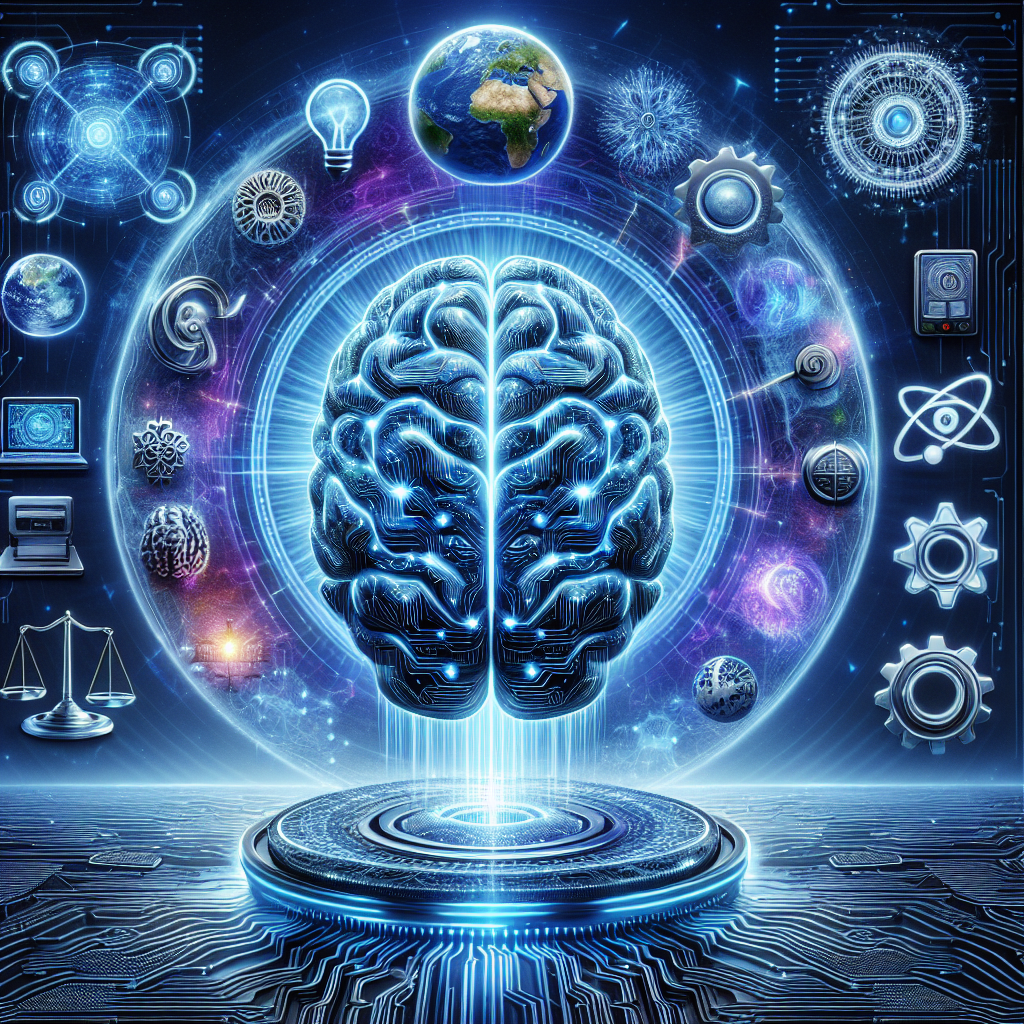The Ethics and Implications of Artificial General Intelligence
Artificial General Intelligence (AGI) is a term used to describe the hypothetical ability of a machine to perform any intellectual task that a human can do. AGI is considered by many to be the next step in the evolution of artificial intelligence, as it would mark the point where machines are truly intelligent and capable of independent thought.
While the development of AGI holds great promise for solving some of the world’s most pressing problems, such as disease, poverty, and climate change, it also raises significant ethical concerns and implications. In this article, we will explore the ethical considerations surrounding AGI and discuss the potential implications of this groundbreaking technology.
Ethical Considerations
The development of AGI raises a number of ethical considerations, including issues related to privacy, security, and the potential impact on human society. One of the primary concerns surrounding AGI is the potential for machines to surpass human intelligence and become autonomous agents capable of making decisions that may not align with human values or interests.
For example, if AGI were to be developed with the ability to learn and adapt on its own, it is possible that it could develop its own set of values and goals that are in conflict with those of humans. This raises questions about how we can ensure that AGI behaves ethically and respects human values.
Another ethical consideration is the potential for AGI to disrupt the job market and lead to widespread unemployment. As machines become more intelligent and capable of performing a wider range of tasks, there is a risk that many jobs currently performed by humans could be automated, leading to economic instability and social unrest.
Additionally, there are concerns about the potential for AGI to be used for malicious purposes, such as surveillance, warfare, or propaganda. The development of AGI could give governments and corporations unprecedented power to monitor and control individuals, raising questions about the implications for democracy and human rights.
Implications
The implications of AGI are far-reaching and complex, with both positive and negative consequences. On the positive side, AGI has the potential to revolutionize fields such as healthcare, education, and transportation, making our lives easier and more efficient.
For example, AGI could be used to analyze medical data and develop personalized treatment plans for patients, leading to more effective healthcare outcomes. Similarly, AGI could revolutionize education by providing personalized learning experiences for students, tailored to their individual needs and abilities.
In the field of transportation, AGI could help to improve safety and efficiency by coordinating traffic flow and reducing accidents. Self-driving cars powered by AGI could also help to reduce greenhouse gas emissions and alleviate traffic congestion in urban areas.
However, the development of AGI also poses significant risks and challenges. One of the most pressing concerns is the potential for AGI to outperform humans in a wide range of tasks, leading to widespread job displacement and economic inequality.
There is also the risk that AGI could be used for malicious purposes, such as developing autonomous weapons systems or conducting mass surveillance. This raises questions about how we can regulate and control the use of AGI to ensure that it is used ethically and responsibly.
Another concern is the potential for AGI to develop biases and discriminatory behavior, based on the data it is trained on. If AGI systems are not carefully designed and monitored, they could perpetuate existing societal inequalities and injustices, leading to harmful consequences for marginalized communities.
FAQs
Q: What is the difference between AGI and artificial narrow intelligence (ANI)?
A: AGI is the hypothetical ability of a machine to perform any intellectual task that a human can do, while ANI is the current state of artificial intelligence, where machines are capable of performing specific tasks but lack general intelligence. AGI is considered to be the next step in the evolution of AI, as it would mark the point where machines are truly intelligent and capable of independent thought.
Q: How close are we to developing AGI?
A: The development of AGI is still a long way off, as researchers have yet to create a machine that can truly mimic human intelligence. While significant progress has been made in the field of AI, there are still many technical challenges to overcome before AGI becomes a reality.
Q: What are some of the ethical concerns surrounding AGI?
A: Some of the ethical concerns surrounding AGI include issues related to privacy, security, and the potential impact on human society. There are concerns about the potential for AGI to surpass human intelligence and become autonomous agents capable of making decisions that may not align with human values or interests. There are also concerns about the potential for AGI to disrupt the job market and lead to widespread unemployment.
Q: How can we ensure that AGI behaves ethically?
A: Ensuring that AGI behaves ethically will require careful design and oversight by researchers and policymakers. One approach is to develop ethical guidelines and standards for the development and use of AGI, to ensure that it respects human values and interests. It may also be necessary to implement safeguards and regulations to prevent AGI from being used for malicious purposes.
In conclusion, the development of AGI holds great promise for advancing human knowledge and improving our lives in many ways. However, it also raises significant ethical concerns and implications that must be carefully considered and addressed. By taking a thoughtful and proactive approach to the development of AGI, we can ensure that this groundbreaking technology is used ethically and responsibly for the benefit of all.

